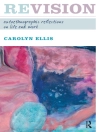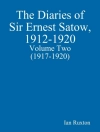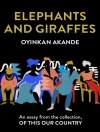In ‘A Sheaf of Corn, ‘ Mary E. Mann presents a rich tapestry of rural life in late 19th-century England, weaving together the complexities of human relationships with the backdrop of agricultural society. The novel employs a lyrical prose style that reflects Mann’s keen observations of nature and the subtleties of character interactions. Set against the swiftly changing social landscape of the Victorian era, the narrative deeply explores themes of struggle, resilience, and the bonds that unite communities in times of hardship, while illuminating the roles of both men and women in a transitioning world. Mary E. Mann, a prominent figure in the literary landscape of her time, was steeped in the values and norms of Victorian society, which profoundly influenced her work. As the daughter of a farmer and an advocate for women’s education, she often drew upon her own experiences and the realities of rural life to craft stories that resonate with authenticity. Mann’s connections with prominent literary circles, alongside her advocacy for social reform, equipped her with a nuanced understanding of the human condition, deftly reflected in her writing. ‘A Sheaf of Corn’ is a compelling invitation for readers to engage with the human experience as articulated by Mann’s profound insight. This novel is essential for those interested in the intersection of literature and social commentary, particularly in relation to gender and class dynamics. Readers will find themselves captivated by Mann’s vivid storytelling and the enduring relevance of her exploration into our shared humanity.
Sobre el autor
Mary E. Mann (1848-1929) was an English novelist and short story writer, notable for her vivid portrayal of rural life in Norfolk during the late 19th and early 20th centuries. Her works are characterized by their sympathetic representation of the rural poor and a distinctively realistic narrative style. Mann was born in Norwich, Norfolk, and lived most of her life in and around this pastoral landscape, which became the backdrop for much of her fiction. She is perhaps best known for her collection of short stories, ‘A Sheaf of Corn’ (1908), which provides acute observations of village characters and the societal changes impacting their lives at the turn of the century. Mann’s writing deftly combines a keen eye for local dialect and custom with an empathetic, yet unsentimental, depiction of country life. Her narratives often explore themes of poverty, social injustice, and the encroachment of modernity on traditional ways of life, subjects that resonated with her readership and contributed to the enduring quality of her work. Mann’s contributions to English literature have been recognized for their ethnographic significance as well as their literary merit, offering a window into a way of life that has since transformed considerably.












